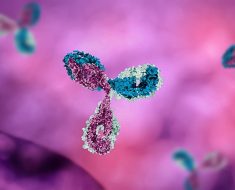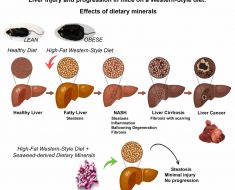The National Autistic Society outline common autism traits
We use your sign-up to provide content in ways you’ve consented to and to improve our understanding of you. This may include adverts from us and 3rd parties based on our understanding. You can unsubscribe at any time. More info
Elizabeth Weir – a PhD candidate at the Autism Research Centre in Cambridge – said: “Understanding the intersectional identities of autistic individuals who are asexual, bisexual, homosexual, or ‘other’ sexuality is key.” Weir added that healthcare providers need to use language that is “affirming and accepting of all sexual orientations and gender identities”. This is to help improve the services of sexual health screening for autistic and non-autistic people alike.
In the study – published in the journal Autism Research – the findings contradicted the stereotype that autistic individuals are uninterested in sexual or romantic relationships.
Being the largest study to date, the team at the Autism Research Centre used anonymous, self-reported surveys to study the sexual activity, orientation, and sexual health of autistic adults.
Overall, 1,183 autistic and 1,203 non-autistic adolescents and adults (aged 16 to 90 years old) provided information on themselves.
The results showed that 70 percent of autistic males and 76 percent of autistic females engaged in sexual activity.

Meanwhile, 89 percent of non-autistic males and females reported engaging in sexual activity.
What’s more, there was no difference in the likelihood of ever contracting a sexually transmitted infection (STI) between both groups.
STI
The symptoms of an STI, as pointed out by the NHS, can include:
- An unusual discharge from the vagina, penis or anus
- Pain when peeing
- Lumps or skin growths around the genitals or bottom (anus)
- A rash
- Unusual vaginal bleeding
- Itchy genitals or anus
- Blisters and sores around your genitals or anus
- Warts around your genitals or anus
- Warts in your mouth or throat, but this is very rare.
If you’re presenting with any signs of an STI, you should visit a sexual health clinic.
DON’T MISS:
The smelly sign of Parkinson’s you shouldn’t ignore [INFORMER]
Monty Don health: ‘I think I’m dying’ [INSIGHT]
Bowel cancer symptoms: The ‘sensation’ when having a poo – sign [EXPLAINER]
Common types of STIs include:
- Chlamydia
- Gonorrhoea
- Trichomoniasis
- Genital warts
- Genital herpes
- Pubic lice
- Scabies
- Syphilid
- Human papillomavirus (HPV).
The research also found that autistic adults and adolescents are approximately “eight times more likely to identify as asexual and ‘other’ sexuality than their non-autistic peers”.
Furthermore, autistic males are 3.5 times more likely to identify as bisexual than non-autistic males.
Meanwhile, autistic females are three times more likely to identify as homosexual than non-autistic females.

When comparing autistic females to autistic males, they were more likely to be:
- More sexually active
- More likely to identify as asexual, bisexual, and “other” sexuality
- Less likely to identify as heterosexual.
Dr Carrie Allison – the director of strategy at the Autism Research Centre – commented on the findings.
“We must ensure that autistic individuals are receiving equal access to healthcare.”
Professor Simon Baron-Cohen, the director of the Autism Research Centre – also added his thoughts.

“This new study is an important example of applied health research with policy relevance for health and social care services,” he said.
Symptoms of autism in adults
The NHS pointed out common symptoms, such as:
- Finding it hard to understand what others are thinking or feeling
- Getting very anxious about social situations
- Finding it hard to make friends or preferring to be on your own
- Seeming blunt, rude or not interested in others without meaning to
- Finding it hard to say how you feel
- Taking things very literally – for example, you may not understand sarcasm or phrases like “break a leg”
- Having the same routine every day and getting very anxious if it changes.
Other signs of autism might include:
- Not understanding social “rules”, such as not talking over people
- Avoiding eye contact
- Getting too close to other people, or getting very upset if someone touches or gets too close to you
- Noticing small details, patterns, smells or sounds that others do not
- Having a very keen interest in certain subjects or activities
- Liking to plan things carefully before doing them.
Autistic women may be quieter, hide their feelings, and may appear to cope better in social situations, which is why it can harder to spot in women.
Source: Read Full Article





